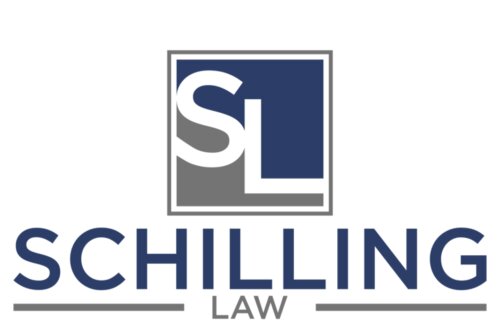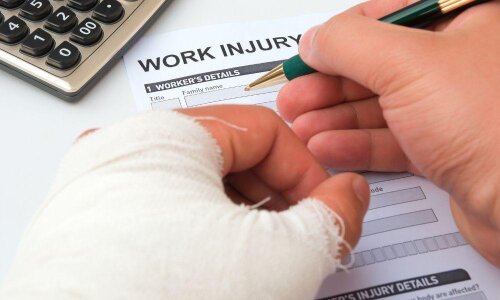Best Animal & Dog Injury Lawyers in Kansas
Share your needs with us, get contacted by law firms.
Free. Takes 2 min.
Or refine your search by selecting a city:
List of the best lawyers in Kansas, United States
About Animal & Dog Injury Law in Kansas, United States
Animal and dog injury law in Kansas deals with incidents where a person is injured by another person's pet, most commonly a dog. These cases may involve bites, attacks, or even injuries caused by animals running loose. Kansas law outlines specific rights and responsibilities for pet owners and injured individuals. Victims may be entitled to compensation for medical bills, lost wages, pain and suffering, and property damage resulting from an animal-related incident. Understanding the legal framework is essential for anyone seeking justice after being injured due to someone else's animal.
Why You May Need a Lawyer
If you have been injured by an animal in Kansas, you may be facing medical treatment, financial burdens, and emotional stress. Engaging a lawyer can help in several common situations, such as:
- When liability or fault for the injury is disputed
- If the pet owner or their insurance denies your claim
- When injuries are severe and damages are significant
- If the animal has a history of attacks or aggression
- When local animal control or law enforcement is involved
- In cases involving tenants, landlords, or property managers
- If you are being accused of negligence as the pet owner
A knowledgeable attorney can evaluate the facts, gather evidence, negotiate with insurance companies, and represent you in court if needed.
Local Laws Overview
Kansas does not have a statewide "strict liability" dog bite statute, but operates mainly under the "one-bite rule." This means that, generally, a pet owner is liable for injuries if they knew or should have known their animal was dangerous or had previously bitten someone. Municipalities may have their own ordinances regarding leash laws, dangerous dog definitions, and reporting requirements.
Key aspects of Kansas animal and dog injury laws include:
- The "one-bite rule" establishes that an owner may be liable after the first incident if it was foreseeable based on the animal's prior behavior
- Victims must prove the owner's negligence (for example, permitting a dog to roam freely in violation of leash laws)
- Comparative fault applies, reducing compensation if the victim is partly responsible (such as provoking the animal)
- There are time limits (statutes of limitations) for filing personal injury claims, which in Kansas is generally two years from the date of injury
- Local ordinances may affect how cases are handled and the responsibilities of pet owners
Understanding these rules is crucial for anyone seeking to recover damages after a dog or animal-related incident in Kansas.
Frequently Asked Questions
What should I do immediately after being injured by a dog in Kansas?
Seek medical attention, document your injuries, identify the animal and its owner, collect witness information, and report the incident to local animal control or authorities. Taking these steps protects your health and helps support any legal claim.
Can I file a claim if this is the dog's first offense?
Kansas follows the "one-bite rule," so legal responsibility depends on whether the owner knew or should have known the dog was dangerous. However, if the owner was negligent (such as violating leash laws), you may still have a claim.
What types of compensation can I recover after a dog bite?
You may be entitled to compensation for medical bills, lost wages, pain and suffering, mental anguish, and any property damage directly related to the incident.
How long do I have to take legal action for an animal injury in Kansas?
The statute of limitations for personal injury cases in Kansas is typically two years from the date of the injury. It is important to act promptly to preserve your rights.
Does Kansas have any breed-specific laws?
Some Kansas cities and counties may have breed-specific ordinances or restrictions. It is important to check your local municipality for rules on certain breeds deemed dangerous.
Is a dog owner always responsible for injuries caused by their pet?
Not always. You must show the owner was negligent or that they knew the animal had dangerous tendencies. Owner liability can also be affected by the injured person's actions.
Should I speak to the dog owner's insurance company on my own?
It is generally wise to consult a lawyer before providing detailed statements or accepting any settlement offers from insurance companies to ensure your rights are protected.
What if the dog that injured me was a stray or had no identifiable owner?
Claims against negligent third parties, such as property owners or landlords, may be possible. Local animal control authorities should also be notified.
Can I file a claim if I was bitten while working, such as delivering mail or packages?
Yes, workers injured by dogs in the course of employment may have claims against the animal owner and may also qualify for workers’ compensation benefits.
What if I am the pet owner and my dog injured someone?
You should notify your homeowner’s or renter's insurance and consider consulting a lawyer. Be prepared to cooperate with authorities and follow any local requirements, including quarantine or registration of the animal.
Additional Resources
- Kansas Department of Health and Environment - for general public health and injury reporting
- Local animal control offices or humane societies - for animal complaints and information on regulations
- Kansas Bar Association - for attorney referrals and legal information
- Kansas Department of Agriculture, Division of Animal Health - for animal regulations and guidance
- Kansas Legal Services - for low-cost or free legal assistance
Next Steps
If you or a loved one has been injured by an animal in Kansas, start by obtaining proper medical care and documenting the incident as thoroughly as possible. Report the incident to local authorities or animal control and secure any evidence, such as photographs and witness statements. Next, seek an experienced attorney who understands Kansas animal injury laws. Legal professionals can evaluate your case, explain your rights, and help you pursue the compensation you deserve.
Many lawyers offer free initial consultations for personal injury matters. Be prepared with all relevant documentation and details when you meet with them. Taking prompt, informed action increases your chances of a successful outcome.
Lawzana helps you find the best lawyers and law firms in Kansas through a curated and pre-screened list of qualified legal professionals. Our platform offers rankings and detailed profiles of attorneys and law firms, allowing you to compare based on practice areas, including Animal & Dog Injury, experience, and client feedback.
Each profile includes a description of the firm's areas of practice, client reviews, team members and partners, year of establishment, spoken languages, office locations, contact information, social media presence, and any published articles or resources. Most firms on our platform speak English and are experienced in both local and international legal matters.
Get a quote from top-rated law firms in Kansas, United States — quickly, securely, and without unnecessary hassle.
Disclaimer:
The information provided on this page is for general informational purposes only and does not constitute legal advice. While we strive to ensure the accuracy and relevance of the content, legal information may change over time, and interpretations of the law can vary. You should always consult with a qualified legal professional for advice specific to your situation.
We disclaim all liability for actions taken or not taken based on the content of this page. If you believe any information is incorrect or outdated, please contact us, and we will review and update it where appropriate.
Browse animal & dog injury law firms by city in Kansas
Refine your search by selecting a city.














